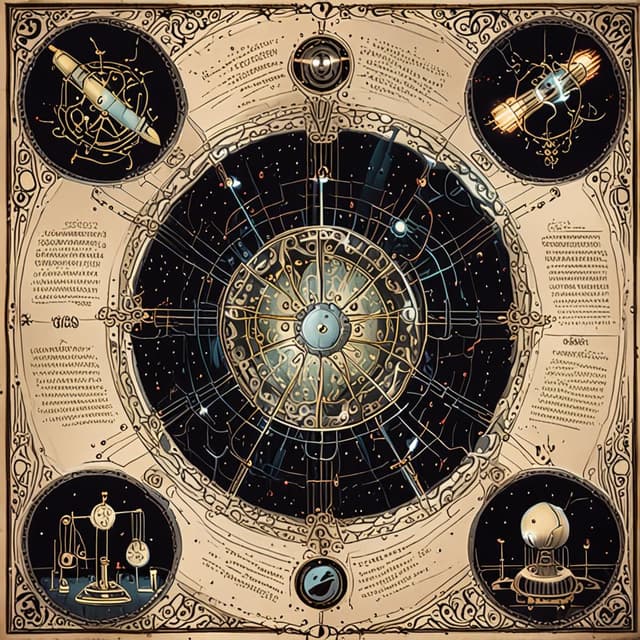
| Timeline | Alternate |
| Timing differences | |
| Notable discoveries | Fifth fundamental force of nature • Artificial intelligence • Dark matter prediction and detection • Nuclear fusion technology • Extraterrestrial life |
While many significant scientific discoveries and innovations occurred in this alternate timeline, several stand out as particularly transformative and distinct from our own history.
Scientists in this timeline discovered a new fundamental force of nature, distinct from gravity, electromagnetism, and the strong and weak nuclear forces. First postulated in the 18th century, this "fifth force" played a crucial role in the development of quantum mechanics and was instrumental in explaining previously unexplainable phenomena. Research into this force led to the development of new materials, the design of more efficient engines, and ultimately, breakthroughs in theories of unified physics.
In this timeline, the creation of artificial intelligence originated in the 18th century, powered by intricate clockwork machines and complex hydraulic systems. These early AIs, while rudimentary by modern standards, possessed a level of autonomy and decision-making capabilities that would not be achieved in our reality until many years later. The rise of artificial intelligence brought about several major social and economic shifts, including the development of autonomous machinery for manufacturing and agriculture, as well as the rise of automata as an art form.
In this alternate timeline, dark matter was predicted and detected in the early 1600s, over three centuries before it was discovered in our reality. This breakthrough opened up a new era of astronomy and physics, as researchers sought to understand the invisible mass that makes up more than 80% of the matter in the universe. This early discovery allowed for more refined theories of galaxy formation, the development of improved telescope designs, and even led to the exploration of possible dark matter-based technologies.
In this timeline, the development of nuclear fusion technology occurred in the 19th century. The construction of functioning fusion reactors not only reshaped the global energy landscape but also set the stage for the exploration of space. The discovery of this powerful new energy source allowed for the early development of advanced propulsion systems, enabling the establishment of human settlements on Mars and other planets in the solar system.
In the 17th century, scientists discovered conclusive evidence of extraterrestrial life in this alternate timeline, which was a hundred years earlier than in our own history. The discovery of microbial life on Mars marked the beginning of a new age of scientific inquiry, driving the development of advanced astrobiology and planetary science disciplines. This event also had profound philosophical implications, leading to extensive debates regarding the position of humanity in the universe, and ultimately prompting a gradual shift in the prevailing religious and cultural views of the time.